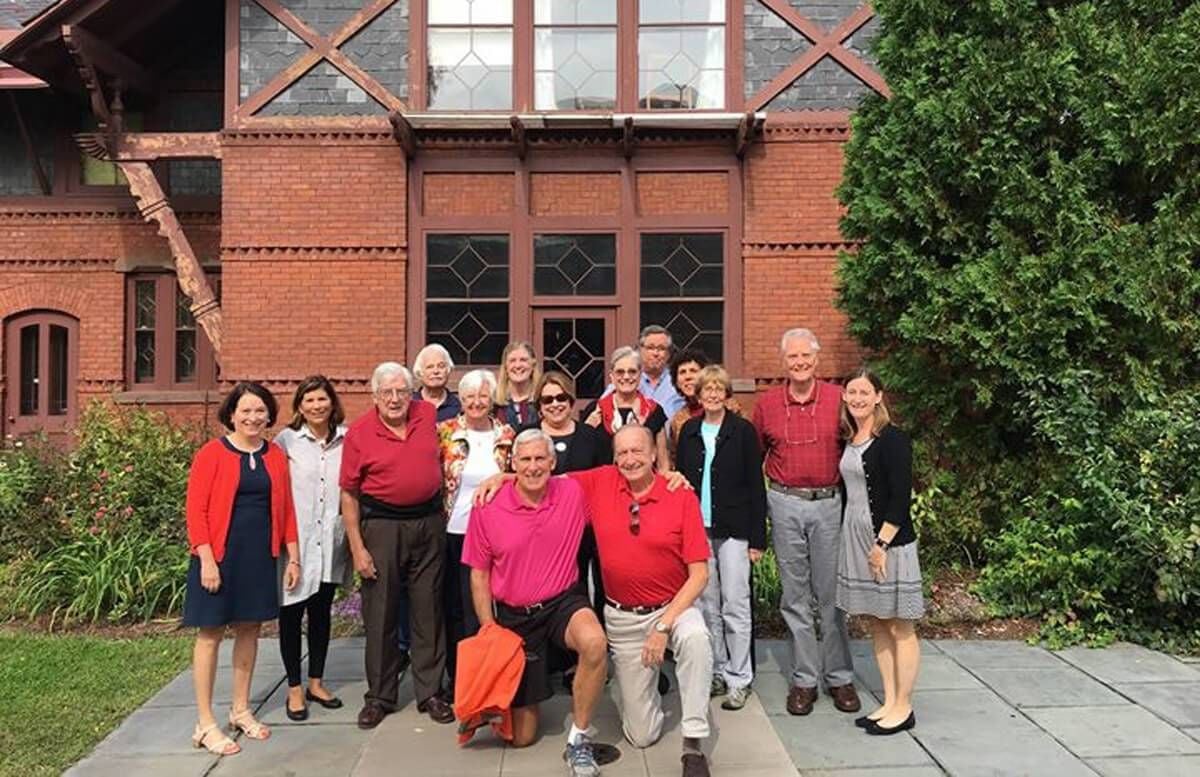6 Tips for a Terrific Retirement
Advice from former United Way execs on transitioning from full-time work
The transition from work to retirement can be a challenge. As much as we complain about work, a full-time job provides us with a routine, a community and a sense of purpose. If you want to enjoy a fulfilling retirement, you need to find a way to replace those benefits. But what’s the best way to do that? How do you decide where to devote your time and energy?

I recently picked up some great advice on this from a small group of retired United Way executives attending the annual United Way Retirees Association gathering in Connecticut. They invited me to join them over lunch for a chat about retirement, transitions and lessons learned from their experience.
Here are six key takeaways from our conversation:
1. Embrace “productive” leisure activities. As Next Avenue’s Richard Eisenberg recently wrote, many executives find it challenging to adjust to the slower pace of retirement. Yet the United Way folks I met said they’ve come to appreciate the restorative power of leisure.
While endless TV is draining, productive leisure activities like reading, travel and exercise can energize.
Rob Reifsnyder, who retired just a few months ago from his job as president of United Way of Greater Cincinnati summed it up this way: “For the first time in 43 years, I have some space in my day. I do sometimes miss the importance and intensity of the work I did and the people I worked with. But I'm doing my best to stay connected and engaged in our community, and to contribute back in meaningful ways — while exercising and running more, reading more, spending more time with my wife Gretchen, traveling more, and getting more sleep!” He is also currently serving on two nonprofit boards, as well as several committees.
2. Set goals. As valuable as leisure is, you still need to be intentional about your life. That’s why Pat Fekete, the former president and CEO of the United Way of Denton, Texas, who retired in 2006, suggests a “for-my-eyes-only” retirement goals list.
She writes one each year around Thanksgiving and finds it helps her clarify priorities and focus so she can develop an interesting action plan. Her retirement goals list includes wellness and spiritual goals; travel and volunteer plans and ideas about fun new ways to spend time with her husband, children and grandchildren.
“We know that the years are getting shorter, so we want to fill them with memories,” she said.
3. Share your professional expertise (on a flexible basis). As I frequently write on Next Avenue, many retirees work on a flexible basis, as consultants, temps, project workers or volunteers. While only a few members of the United Way group I met continued to work for pay in retirement, those who did said their work as consultants helped them remain professionally active, without the stress of a full-time job.
Reifsnyder works five days a month as a consultant to United Way Worldwide (United Way’s global arm) and Terry Tolan, the former president and CEO of United Way Kentucky and executive director of the Kentucky Governor’s Office of Early Childhood, works 20 hours per week as a consultant to a variety of nonprofits.
4. Keep learning. Lifelong learning provides intellectual stimulation, a sense of accomplishment and new social connections, the United Way retirees told me. Those are just some of the reasons why Joe Tolan, former president and CEO of Metro United Way in Louisville (and husband of Terry), enrolled in classes at his local university after retiring and eventually earned a certification as a master gardener.
His studies included an internship as a master gardener, a commitment that required an additional 10 hours of continuing education and 40+ hours of community service. Tolan helped create a multi-feature garden at a local nonprofit that provides end-of-life support for people lacking family or financial resources.
This has proved an interesting new outlet for Joe, and Terry says it’s given the two of them a new community of friends they might not have met otherwise. “The members of the project he is involved with vary in age, gender, race and more,” she said. “They’ve all become our friends and we enjoy socializing together.”
5. Cultivate your creativity. At Next Avenue, we often write about the powerful impact the arts have on mental, emotional and social wellness. So I was pleased to learn that many of the United Way retirees are actively involved in creative pursuits, including cooking, painting and photography.
Some treat these activities as fun hobbies; others view them more seriously.
Fekete said that other than spending time with her husband, her primary focus in retirement is her art. She paints (mostly watercolors) out of her home art studio; has served in a leadership capacity with three arts organizations and occasionally exhibits her artwork. She clearly savors the creative side of her work, but says her greatest joy comes from spending time around the close-knit community of other artists.
6. Pass it down. Sharing your legacy and life lessons with your grandchildren can be one of the most meaningful aspects of retirement, the United Way retirees told me.
A terrific example: Bob Ferriday, former chief financial officer of United Way of Greater Milwaukee, who wanted to teach his grandchildren the value of helping others. He offered a “soft challenge” to his two oldest grandchildren, then in their teens. He suggested they select a charity, research it and then report on their findings at the annual family Christmas gathering. If they agreed to the challenge, Ferriday would make a meaningful donation to their charity in their name and give them a small cash thank you for their effort.
The challenge proved such a success that it became an annual tradition enjoyed by nearly all of his 14 grandchildren.
Ferriday says this “legacy experiment” surpassed all his expectations. “Each grandchild took the challenge in good faith [with one exception], they gained valuable public speaking experience and it helped them realize how incredibly fortunate they are,” he notes.
One last retirement reminder from the group: Take care of yourself. Get enough sleep, exercise regularly and eat a healthy diet. The best retirement plan in the world means nothing, they said, if you don’t have the good health to enjoy it.


